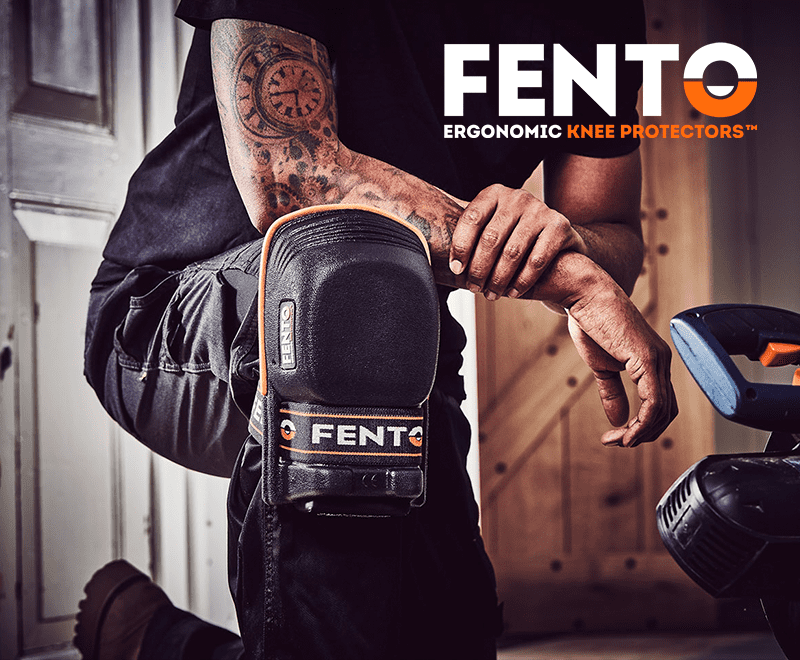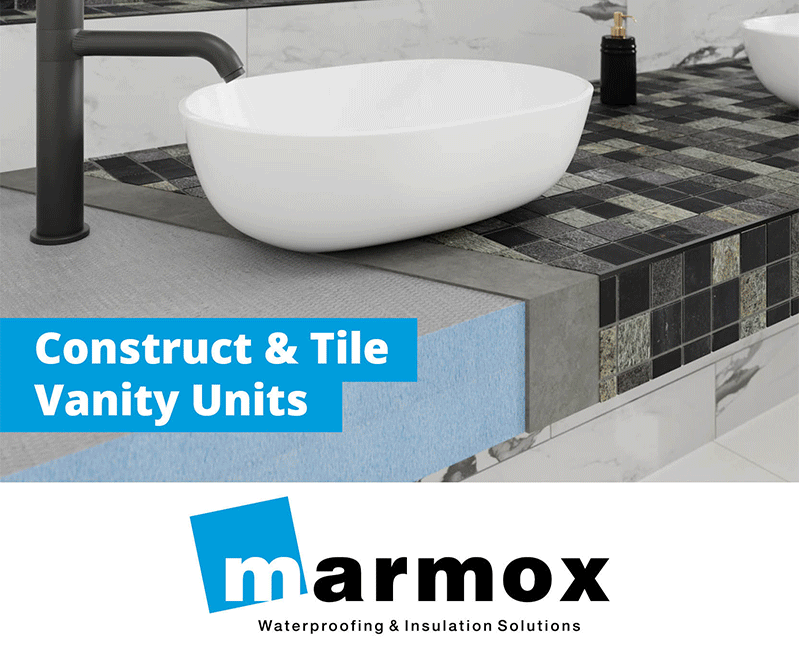A good aftercare regime does much more than just retain a good tile aesthetic. It also makes ongoing maintenance easier – reducing the need to carry out costly deep cleans – and it retains a tile’s performance. But what are the dangers of using the incorrect products? LTP technical director, Mark Atkins explains.
Why pH is so important & what to avoid
In general, pH neutral products which sit in the middle of the pH scale are the safest solutions to use for the aftercare of tiles and, when it comes to stone, they are imperative. Whilst very hardwearing in nature, natural stone surfaces are sensitive to acid and use of acidic detergent – which has a low pH – will etch the stone along with the grout joint. It will also damage any protective sealer applied and will dull a polished surface. Even quality ‘eco’ surface cleaners often contain acidic ingredients, as do common ‘homemade hack’ recipes made from vinegar, lemon and baking soda. Bleach should also be avoided; whilst it is alkaline, rather than acidic and has a high pH value, it is still too harsh for natural stone. Steam cleaning isn’t recommended either, as it can damage a stone sealer and compromise protection. Intense heat can also cause ‘spalling’ or flaking of the limestone.
These considerations aren’t so imperative with porcelain surfaces which are generally very resistant to chemicals. However, harsh solutions can still damage grout and any protective sealer applied. If toxic in nature, they can also be unpleasant and potentially harmful to the applicator and the environment.
What to use for routine & deep cleaning
A regular “routine” clean will maintain a hygienic environment and a tile’s aesthetic. Once grease and dirt build up on a surface, tiles will be more difficult to clean, and they may become slippery. A periodic deep clean in high traffic areas may also be necessary. Often, the same specialist detergent can be used for routine and deep cleaning, with the dilution ratio and method adjusted to suit. This is the case with LTP Grimex, which can safely be used for all types of tile and stone.
For ongoing maintenance, LTP offers a variety of pH neutral cleaners for all tile types, including Multipurpose Cleaner and Stonewash – each in a no-rinse spray, Porcelain Floor Tile Cleaner and Waxwash. Other treatments include LTP Floorshine – which cleans and renovates dull tiles, wood and laminate surfaces – and treatments to deep clean and protect grout joints.
Maintaining a seamless look – and outdoor pavers
While LTP Grimex can be used to clean tiles laid from inside to outside, and outdoor pavers, targeted treatment is sometimes needed if algae has become established. For pavers stained with slippery black spot, lichen, moss and algae we recommend LTP Blackspot & Algae Remover. This treatment is designed to break down microspores and black spot ‘hyphae’ before they colonise. It’s acid-free, so it is safe to use on acid-sensitive stone as well as engineered tiles.
LTP’s range also includes solutions to treat other specific issues, including rust stains – caused by metal objects and due to iron break out, epoxy resin, cement, grout and salt residue, oxidised linseed oil, congealed fat, wax, paint and mould. Some of these treatments are designed for specific materials, whilst others can be used on all types of tile. New treatments to join the range for 2024 include LTP Grout Haze & Limescale Remover – a ready-to-use first wash spray treatment for the safe removal of cement-based grout haze and limescale.
This new product can be used on all types of engineered tile and unpolished stone surfaces, without affecting the grout joint or tarnishing chrome and steel trims and fittings. Periodic treatment also helps to control and remove hard water stains and limescale.
Protecting newly laid and renovated tiles
For new installations and existing tiles that haven’t been protected, application of an impregnating sealer will provide multiple aesthetic and performance benefits, as well as aiding maintenance. The LTP range includes LTP External Stone Sealer, LTP Mattstone H2O and Colour Intensifier & Stainblock H2O. Other options include LTP MPG H2O – which is specifically formulated for polished marble, porcelain and granite – and barrier treatment, LTP Porcelain Tile Protector. The barrier treatment protects the surface of a textured matt porcelain tile from grout and jointing compound during installation, making it easier for the residue to release and be cleaned out of the textured finish.
Much confusion still exists in terms of porcelain barrier treatments and how they differ from a sealer. The formulation of our own – the Porcelain Tile Protector – is very different to that of our sealers, which have smaller ‘actives’ and, in the case of MPG Sealer, contain nano waxes.
Also, the carrier within the Protector is mildly acidic. This allows for deeper penetration into the fissures of textured porcelain tiles, where it then dries and leaves the active ingredients behind. As they dry, they cross link within the low points of the glaze. This provides protection against penetration from cement and resin-based grouts, making the removal of any residues much easier. The Protector is completely invisible once cured, so it doesn’t alter the appearance of the porcelain. This treatment is primarily used as a pre-grout solution, but it can also be applied to help assist with ongoing cleaning and aftercare, especially on external 22mm porcelain paving.
Restoring faded black pavers
To restore the colour of faded black pavers, LTP Blackstone Sealer & Restorer provides a long-term solution, by protecting the surface and creating a permanent colour enhancement. A water-based impregnator, this treatment contains a permanent colour intensifying pigment and can be used on limestone, marble, slate and concrete pavers.
www.ltp-online.co.uk
01823 666213








